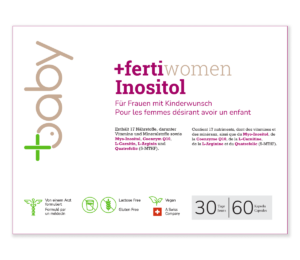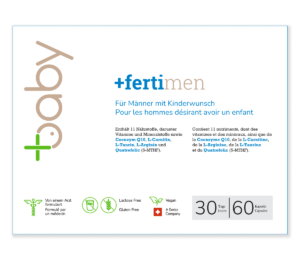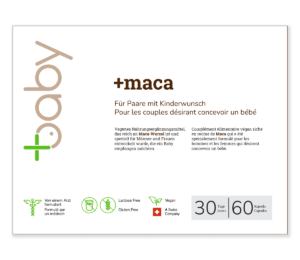Written by the Magali Russell

Fertility can feel like a rollercoaster—some women conceive effortlessly, while others may need extra support. If you’re trying to get pregnant, you’ve probably heard that diet and lifestyle play a huge role in reproductive health. But did you know that even a well-balanced diet might not provide all the essential nutrients your body needs for conception? That’s where choosing the right food supplement for women can help enhance your fertility journey.
Fertility-boosting supplements are designed to support hormone balance, improve egg quality, and provide vital nutrients that may be missing from your daily diet. If you’re just starting your journey or have been trying for a while, the right dietary supplement can help optimize your body for pregnancy.
But with so many supplements out there, how do you know which one is right for you? And do they really work? Let’s explore how fertility supplements can support your journey to motherhood.
Table of Contents
ToggleMany women focus on tracking their cycles and maintaining a healthy lifestyle when trying to conceive. While these are important, your diet plays a key role in fertility, with research showing that a Mediterranean-style diet rich in omega-3s, fiber, and essential vitamins can have a positive impact.
Certain nutrients help regulate hormones, support egg health, and prepare your body for pregnancy. On the other hand, deficiencies in key vitamins and minerals can lead to irregular periods, poor egg quality, and even issues with implantation.
This is why fertility specialists often recommend a carefully formulated food supplement for women to support their reproductive health. These supplements ensure your body gets all the nutrients it needs—even if your diet isn’t perfect.
A food supplement for women designed to support fertility should contain the following key nutrients:
You’ve probably heard about folic acid being important during pregnancy, but it’s just as crucial before conception. It helps with DNA formation and supports egg development. Women trying to conceive should aim for at least 400 mcg of folic acid per day.
Low iron levels can lead to anovulation (when your body doesn’t release an egg), making conception harder. An iron supplement helps ensure your body has enough oxygen-rich blood to support reproductive health.
Vitamin D is often called the “sunshine vitamin,” and it’s essential for hormone regulation. Low levels of vitamin D are linked to infertility. A good dietary supplement with vitamin D can help create the right conditions for a healthy pregnancy.
These healthy fats are important for hormone production and reducing inflammation. Omega-3s help regulate menstrual cycles and improve egg quality, making them a must-have in any dietary supplement for fertility.
When choosing a food supplement for fertility, understanding the importance of omega-3 for pregnancy helps ensure proper nutritional support.
Your egg quality declines as you age, but CoQ10 can help. This antioxidant protects eggs from oxidative damage and improves their overall health. Women over 30 may benefit the most from a dietary supplement containing CoQ10.
Both of these minerals help with cell growth, egg quality, and hormone regulation. Many dietary supplements online include these nutrients to support reproductive health.

With so much information out there, it’s easy to get confused about what actually works. Let’s bust some common myths about food supplements for women.
Many women think that taking a supplement will lead to instant results, but that’s not how it works. It takes time—usually three to six months—for nutrients to build up in your system and start improving egg health.
Not all fertility supplements contain the right blend of vitamins and minerals. Some contain fillers or synthetic ingredients that don’t absorb well in the body. Always choose high-quality dietary supplements online from trusted sources.
Even if you don’t have diagnosed fertility problems, taking a dietary supplement can still be beneficial. It helps create the best possible conditions for conception by supporting overall reproductive health.
With so many options available, choosing the right food supplement for women can feel overwhelming. Here are some tips to help you decide:
Trying to get pregnant can be an emotional rollercoaster. One month, you may feel hopeful, and the next, you may feel discouraged. If you’re struggling, remember that you’re not alone—millions of women are on this journey with you.
It’s important to take care of yourself emotionally as well as physically. Surround yourself with supportive people, and don’t be afraid to seek professional help if needed. Your fertility journey is unique to you, and it’s okay to take it one step at a time.
A food supplement for women can be a powerful tool in supporting fertility, but it’s not a magic solution. It works best when combined with a healthy lifestyle, a balanced diet, and a positive mindset.
If you’re trying to conceive, give your body the nutrients it needs by choosing a high-quality dietary supplement. With patience, self-care, and the right support, you can create the best possible conditions for pregnancy.
Remember, every fertility journey is different, and there is no one-size-fits-all approach. Stay hopeful, take care of yourself, and trust that you’re doing everything you can to support your body in this process.



Table of Contents
ToggleAcheter les produits de cet article

I am Magali Russell, the founder of Plusbaby. With over 15 years of experience in research and development, I created and led a preclinical research organisation that conducted rigorous scientific studies on numerous products.The moving stories of women and couples struggling with infertility left a lasting impression on me. This is how I found my calling in life: helping others become parents by offering them genuine support.
Convinced of the benefits of natural products, I created Plusbaby: vegan dietary supplements, developed in Switzerland, combining proven science and pure, premium, additive-free ingredients to boost fertility naturally.
Continue reading
